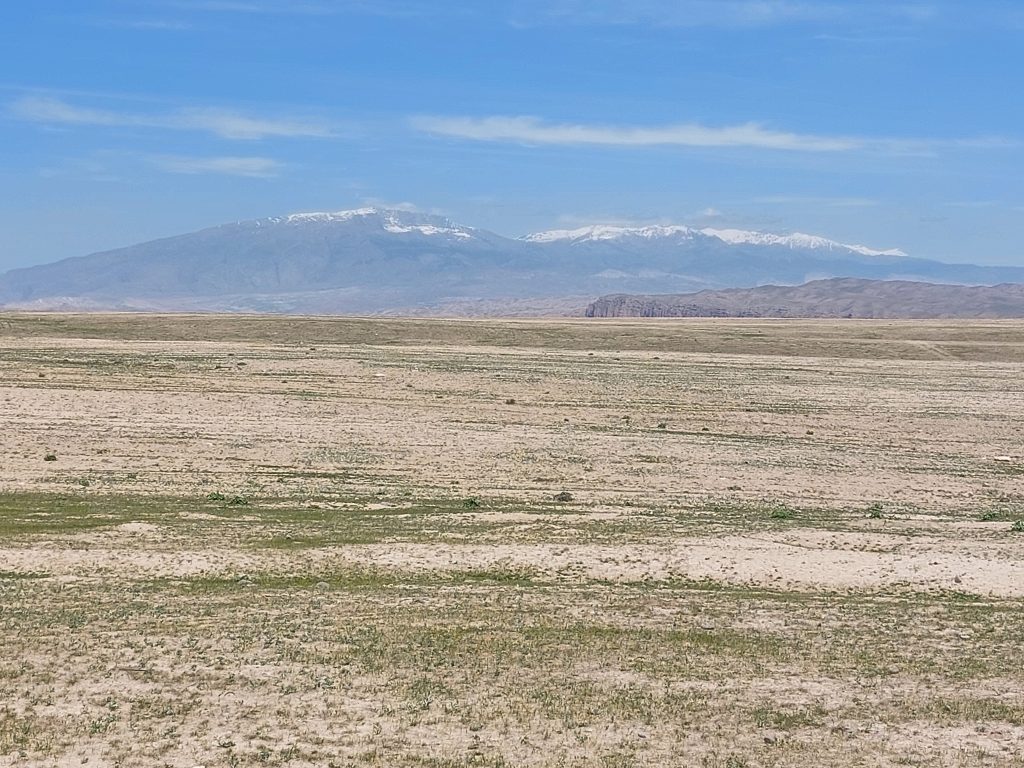February 2024 | BIPS Travel Grant
Rural life in a changing world: new light on economic development and inequality in Central Asia under the Kushan Empire
The most important part of one’s PhD project is to try to get to know the region you are working on, particularly for archaeologists. Having never travelled to Central Asia prior and having had the Covid pandemic as an obstacle for my travels initially, I knew that I had to remedy this. Thus participating in the project was essential to get experience of the region and to work with artefacts and sites from the period I am studying.
I used the funds awarded by BIPS, to travel to and from Uzbekistan. I joined the team at Istanbul airport and from there we made a long journey to and then across Uzbekistan to reach the village where we were being hosted and the site of Kulal Tepe where we worked throughout the whole month of April. It was a long journey and daunting at first, but the results could not have been better.
I spent the month working as part of a team led by Dr Lauren Morris of Charles University who manages the project. It consisted of rotating between roles at excavations, surveying the area around the site of Kulal Tepe, and also documenting and assisting in the processing of artefacts. This was part of my aims; to work in situ and gain a better understanding of the region’s artefactual corpus in the context of excavations. The multifaceted nature of the excavation, which included various specialists, was a further boon in this regard. I got to work with pottery specialists, survey experts, and also to help with flotation.
Each component of the expedition was useful. I managed to understand the site of Kulal Tepe by digging it, something that is difficult for many of the sites I study for my PhD due to them having been excavated in the past. Surveying gave me a much better understanding of the landscape of Bactria and processing material gave me better insights into the material culture of non-elite populations. I thus developed many field skills that allowed me to catch up from the lag in field experience brought upon by Covid.
Another important aspect were the expedition’s days off, when we visited sites like Zar Tepe and Termez’s Kara Tepe. These are sites I am actively working on via excavation reports: it was incredible to be able to see them up close and I felt privileged to be able to visit them, as we also got detailed explanations of the sites and their histories. This also brought us in contact with local archaeologists, who know the region and its history incredibly well.
In the future I hope to continue working in the region through the connections I have made during the expedition. I am already thinking of investigating transitions in religions in the region, building off of my PhD. I was very privileged to participate in this expedition and I hope to use the experiences I have amassed to become a better archaeologist in the future!
—
Christos Nikolaou is a PhD student at the University of Cambridge.
